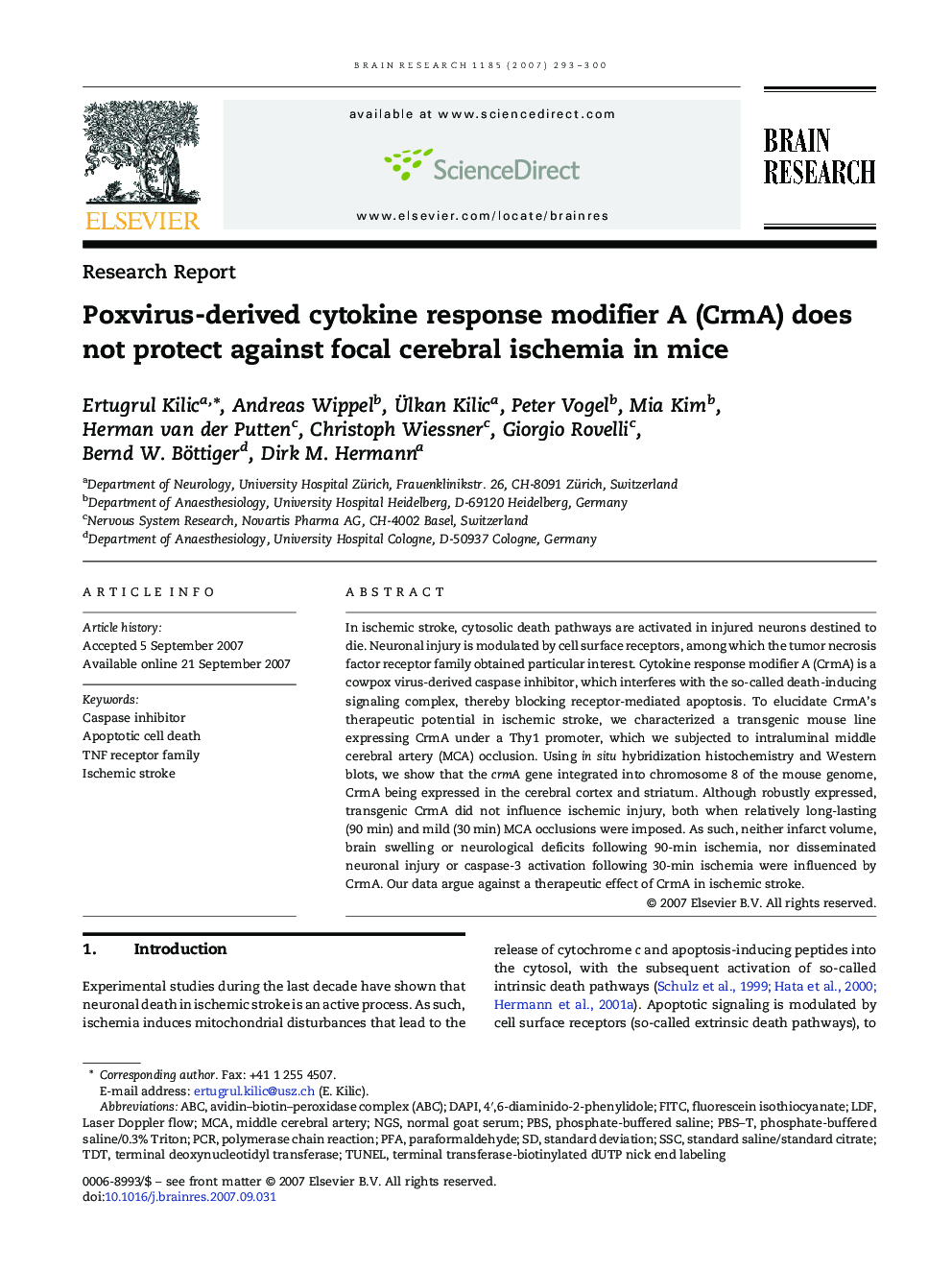| Article ID | Journal | Published Year | Pages | File Type |
|---|---|---|---|---|
| 4330249 | Brain Research | 2007 | 8 Pages |
Abstract
In ischemic stroke, cytosolic death pathways are activated in injured neurons destined to die. Neuronal injury is modulated by cell surface receptors, among which the tumor necrosis factor receptor family obtained particular interest. Cytokine response modifier A (CrmA) is a cowpox virus-derived caspase inhibitor, which interferes with the so-called death-inducing signaling complex, thereby blocking receptor-mediated apoptosis. To elucidate CrmA's therapeutic potential in ischemic stroke, we characterized a transgenic mouse line expressing CrmA under a Thy1 promoter, which we subjected to intraluminal middle cerebral artery (MCA) occlusion. Using in situ hybridization histochemistry and Western blots, we show that the crmA gene integrated into chromosome 8 of the mouse genome, CrmA being expressed in the cerebral cortex and striatum. Although robustly expressed, transgenic CrmA did not influence ischemic injury, both when relatively long-lasting (90Â min) and mild (30Â min) MCA occlusions were imposed. As such, neither infarct volume, brain swelling or neurological deficits following 90-min ischemia, nor disseminated neuronal injury or caspase-3 activation following 30-min ischemia were influenced by CrmA. Our data argue against a therapeutic effect of CrmA in ischemic stroke.
Keywords
DAPITNF receptor familyTdTLDFPFAABCSSCNGSFITCMCAPBSstandard deviationterminal deoxynucleotidyl transferaseTUNELlaser Doppler flownormal goat serumIschemic strokemiddle cerebral arteryfluorescein isothiocyanatePhosphate-buffered salineApoptotic cell deathCaspase inhibitorpolymerase chain reactionPCRparaformaldehyde
Related Topics
Life Sciences
Neuroscience
Neuroscience (General)
Authors
Ertugrul Kilic, Andreas Wippel, Ãlkan Kilic, Peter Vogel, Mia Kim, Herman van der Putten, Christoph Wiessner, Giorgio Rovelli, Bernd W. Böttiger, Dirk M. Hermann,
